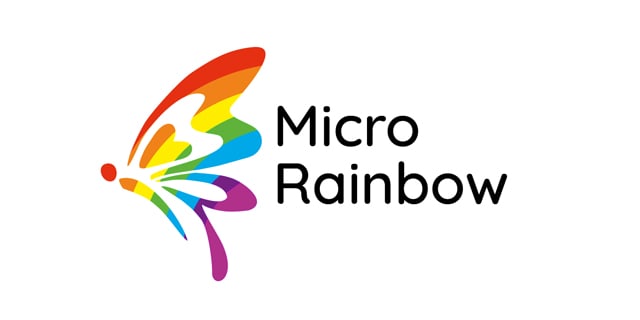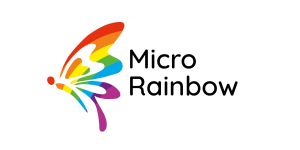Can you tell me a little bit about your background and how you got into asylum work?
I’ve been working in asylum for 20 years now. I fell into it completely by accident, temping at what was then called the Refugee Legal Centre (RLC). I was completely fascinated by the work there, as I had a qualification in employment law from Spain but didn’t quite know what to do with it.
I was really lucky to then join Wilson Solicitors LLP and continue doing work for refugees – first as a caseworker, then as a trainee and a solicitor. At first, I did a bit of everything, but we have always had a very strong relationship with the LGBTQI community and organisations such as UKLGIG. One of our partners, Matthew Davies, has a long history of activism and is very well known in the LGBTQI community.
What common legal issues and challenges have you come across in your work with trans asylum cases?
Before getting into specific challenges, it’s important to note that there is a real lack of understanding of trans issues (people often confuse being trans with cross‑dressing, for example). This is not a problem exclusive to the Home Office, but a societal problem. We live in a transphobic society – not because people are mean‑spirited, but simply because they don’t understand. There has also been a lot of misinformation in the press lately about identifying as trans being fashionable, which is terribly disrespectful.
It is not really understood that gender is about what people have between their ears, and not between their legs. Hopefully this will change one day.
In the way the gay community became better understood and accepted over time, I very much hope the trans community will experience a similar process. This will take time though, and until then, the way the Home Office deals with trans cases is merely a reflection of society.
One of the main issues I’ve seen is misgendering (when your client is a trans woman, for example, and still has a deep voice, or transmen with feminine features people tend to misgender). This is understandable if the initial interaction is over the phone, but it’s not acceptable if your client looks like a woman and the authorities still use the title “sir”. I have encountered situations where clients had to fight with the Home Office to be given the right pronoun.
There is also a lot of misinformation about what transitioning involves. For instance, UK Visas & Immigration sometimes issues Biometric Residence Permits in the wrong gender to those who have not undergone full gender reassignment surgery. They can then refuse to correct the inaccuracy because they don’t consider the person to have fully transitioned. And yet, that person was granted asylum on the basis on trans persecution. It’s totally incongruous! To remedy cases like this, it’s sometimes necessary to bring actions against the Home Office on the basis that this goes against the Equality Act.
Of course, the moment you identify as a different gender, you have transitioned. The problem is that this is not generally understood. Misgendering can be very traumatic for clients because whenever they show their Home Office documentation (e.g. to open a bank account or claim benefits), they often go through the ordeal of being outed all over again. If the gender recorded in the documentation does not correlate to the individual’s appearance, they can be accused of impersonating someone else, using their documentation fraudulently, which is deeply distressing. It can take months to sort out the issue as the Home Office are not terribly responsive in these situations.
This is a classic example of how many trans people are perceived and what they experience. The underlying issue is a lack of understanding of when a person actually transitions. There is a widespread belief that you need to go through complete surgery to be trans. But hardly anybody does, and that’s not what it should take to be accepted as trans.
Can you tell us a little about your experience winning trans asylum cases?
I’m happy to say that I’ve won all the trans asylum cases I’ve taken on.
As an advisor, you have to be very aware of where people are coming from, and very careful not to behave like the rest of society. It’s human nature to be curious but you have to catch yourself out a little bit. I’m very respectful but not so much that I don’t ask questions – because you do have to ask intrusive questions. There’s a way of doing that and being as tactful as possible. It can be very counter‑productive to be too polite, but others can be very tactless. They act like they’re in front of an alien.
I argue my cases depending on the country conditions where my clients come from (typically The Caribbean, Thailand, The Philippines). My arguments usually revolve around both societal and institutional transphobia. Many trans individuals are usually confined to certain professions like sex work, make‑up artistry, or hairdressing. Some people do very well for themselves in these professions, but it’s certainly not the norm. Many of them, particularly transwomen, hardly ever manage to support themselves in mainstream jobs, having to rely on sex work out of necessity – often in very unsafe circumstances – to make ends meet. This is depressingly common, as the vast majority of these women would not voluntary choose to engage in sex work.
I hear the same stories again and again from my clients, because so many of these cases are fairly similar. Trans people without resources of their own or family support are usually forced to live on the fringes of society in their countries of origin. In my experience, transmen even risk “corrective rape” in their home countries as persecutors want to show them that they are not men. Even here in the UK, not everybody is empowered to stand up for their rights and approach the authorities when they have been wronged or exploited. Confinement to certain professions (particularly if these are unsafe) and outright refusal to employ trans people merely for being trans could amount to persecution, so this could be a very effective strategy for building successful trans asylum cases.
Do you have any words of advice for other lawyers representing trans asylum seekers?
Number one: for the first half hour of meeting your client, consider them to be highly vulnerable. More often than not, this is the case. By the time they come to see me these clients are likely to have gone through a lot, both in their home countries in the UK, so I expect them to be on their guard and naturally mistrustful. Sadly, in order to protect themselves, this is the default setting for many trans people.
Be tactful but firm and friendly to gain their trust. Like any other asylum case, it’s all about establishing rapport. I’ve also found that it’s useful to be familiar with what happens when people transition (in toilets, on the telephone). That said, try not to come across as too knowledgeable or intimidating. I would recommend dropping subtle cues to help the client understand that you know what you’re talking about.
When it comes to transwomen in particular, I try to find a way to relate to them on a personal level, whenever possible, for example by talking about very mundane matters, such as personal grooming. It’s a nice way of trying to relate to your client without being patronising. I must confess that I benefit greatly from these exchanges as many of my trans clients are super stylish and are always impeccably turned out, despite some of them having rather limited means. I have learnt an awful lot from many of my clients.
Once you’ve bridged that gap, just get on with the job!
Ana is a partner at Wilsons Solicitors LLP and a longstanding volunteer lawyer for Micro Rainbow. She practises all aspects of immigration and asylum work and has a specialist interest in European law. Ana has extensive experience of litigating in the higher courts, having had numerous cases over the years in the Administrative Court/Upper Tribunal and Court of Appeal. She has also conducted cases in the Supreme Court and the Court of Justice of the European Union in Luxembourg. Find out more about Ana’s work and background.







